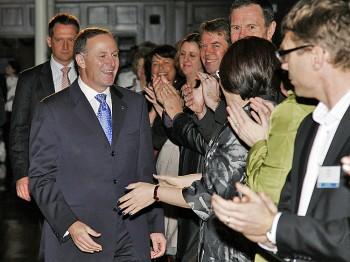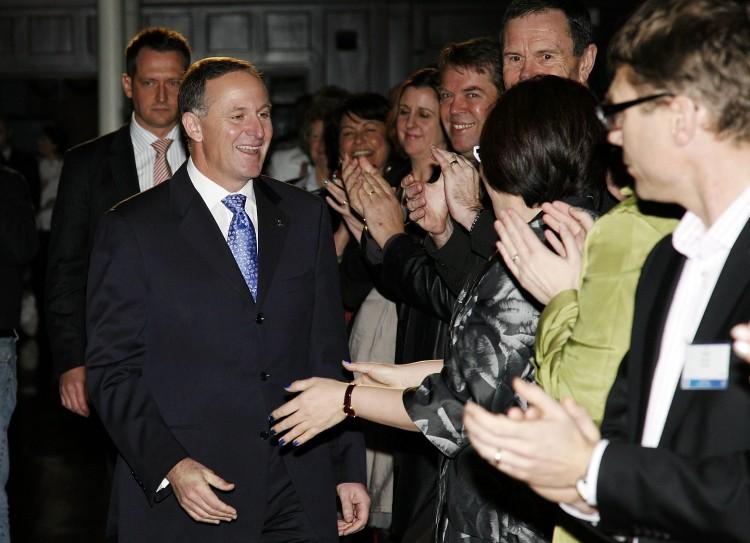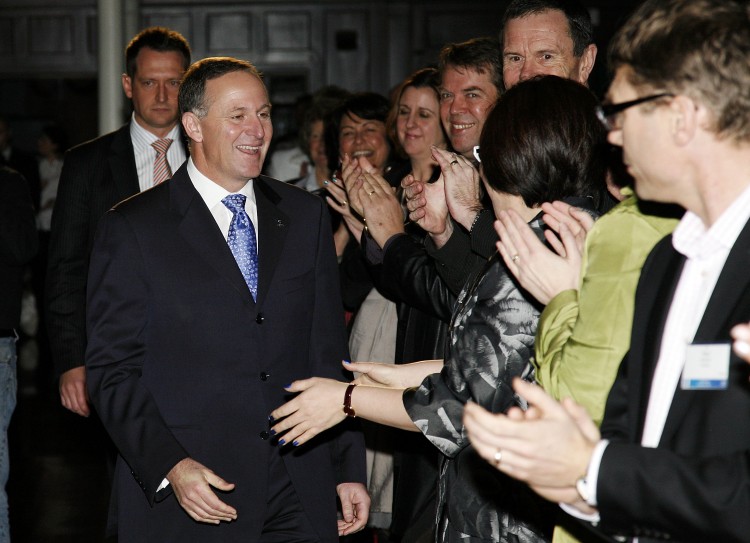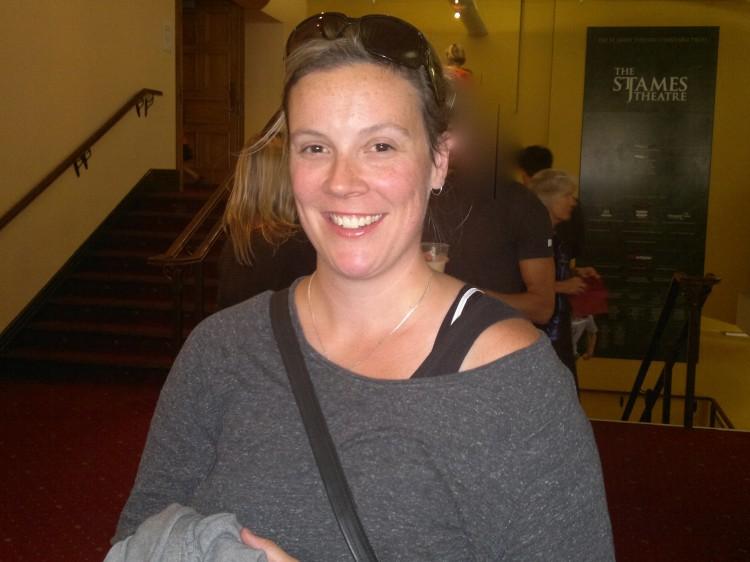Teenage beneficiaries are being asked to become fiscally responsible and take a greater part in the country’s economy.
Prime Minister John Key’s speech at the National Party Conference yesterday signalled a change in welfare policy that coincides with an uncertain fiscal climate.
Over 10 percent of New Zealand’s working-age population – 328,000 people – are on a benefit.
Mr Key said it was worth investing in the younger generation if you looked at the human cost of “wasted potential and poor social outcomes.”
The changes, which are expected to cost $20-$25 million a year, focus on 16 and 17-year-old school leavers who are either not employed, training or involved in education.
Over the last year 8,500 to 13,500 adolescents fell into this category.
Unless steps were put in place, 90 percent of these teens would be on a “collision course with the benefit system” by the time they reached 18 years, said Key.
Also targeted are approximately 1600 youngsters who are eligible for the special 16–17 year-olds’ benefit because they are teen parents or because they were living in a household where family relationships had broken down.
The government also wants the Privacy Act and the Education Act amended to enable it to identify and monitor 16 and 17 year olds who leave school.
The information would be shared between the Ministry of Education and the Ministry of Social Development. Those deemed most at risk of long term benefit dependency would be put in touch with transition agencies which provide a range of services including drug and alcohol counselling.
Funding of such services may be linked to a young person successfully completing a training programme.
Free study towards school-level qualifications in polytechnics and wananga being promised for 7,500 adolescents, under the Governments’ Youth Guarantee policy, is part of a proposal to increase training facilities.
Key believes the “hands-off” approach has failed young people and that changes to benefits, excluding the invalid’s Benefit, are needed.
Funding would go to community and other organisations to provide budgeting advice and support for 16 to 17-year-olds on special benefits and 18-year-old teen parents.
Fortnightly benefit payments will no longer be automatically given to beneficiaries, but will be handled by a young persons’ support provider. It is anticipated the basic costs such as rent and power will be paid on the beneficiaries’ behalf.
Special cards will be loaded with money for food and grocery items, but will not allow the purchase of items such as alcohol or cigarettes.
Those receiving such payments would be obliged to attend budgeting or parenting programmes.
“...and they will have to be in education, training or work-based learning,” says Key who foresees that most teen parents will be involved in such training by the time their child is one year old.
Child care costs would be paid by the government.
Many adolescents from these groups are from dysfunctional family backgrounds, says Key.
“We simply cannot continue to give them money and trust they will do the right things with it.”
Metiria Turei, Green Party Co-leader agrees that young people should be assisted to get off the benefit and into work, but says that if new jobs were not created Key’s proposals will not work.
“.. youth unemployment is at crisis levels, and no amount of information sharing between agencies will help vulnerable young people if the opportunities are not there for them,” she said in a press release.
Ms Turei supports case management and support for 16 and 17-year-old beneficiaries, but said it was a worry that current Work and Income systems did not provide this.
Changes to Work and Income were fundamental to allow for close support and mentoring of young people and that relying on private providers alone would be unworkable.
While policies to help sole parents back into the workforce were necessary, Ms Turei said the needs of young children should be put first.
“Requiring teen parents to be in education and training despite the needs of the child, such as breastfeeding and maternal bonding, has the potential to damage the connection between parent and child that we know is so crucial during the early years.”
The reforms, which will be announced prior to the November elections are based on recommendations from the Welfare Working Group.
Prime Minister John Key’s speech at the National Party Conference yesterday signalled a change in welfare policy that coincides with an uncertain fiscal climate.
Over 10 percent of New Zealand’s working-age population – 328,000 people – are on a benefit.
Mr Key said it was worth investing in the younger generation if you looked at the human cost of “wasted potential and poor social outcomes.”
The changes, which are expected to cost $20-$25 million a year, focus on 16 and 17-year-old school leavers who are either not employed, training or involved in education.
Over the last year 8,500 to 13,500 adolescents fell into this category.
Unless steps were put in place, 90 percent of these teens would be on a “collision course with the benefit system” by the time they reached 18 years, said Key.
Also targeted are approximately 1600 youngsters who are eligible for the special 16–17 year-olds’ benefit because they are teen parents or because they were living in a household where family relationships had broken down.
The government also wants the Privacy Act and the Education Act amended to enable it to identify and monitor 16 and 17 year olds who leave school.
The information would be shared between the Ministry of Education and the Ministry of Social Development. Those deemed most at risk of long term benefit dependency would be put in touch with transition agencies which provide a range of services including drug and alcohol counselling.
Funding of such services may be linked to a young person successfully completing a training programme.
Free study towards school-level qualifications in polytechnics and wananga being promised for 7,500 adolescents, under the Governments’ Youth Guarantee policy, is part of a proposal to increase training facilities.
Key believes the “hands-off” approach has failed young people and that changes to benefits, excluding the invalid’s Benefit, are needed.
Funding would go to community and other organisations to provide budgeting advice and support for 16 to 17-year-olds on special benefits and 18-year-old teen parents.
Fortnightly benefit payments will no longer be automatically given to beneficiaries, but will be handled by a young persons’ support provider. It is anticipated the basic costs such as rent and power will be paid on the beneficiaries’ behalf.
Special cards will be loaded with money for food and grocery items, but will not allow the purchase of items such as alcohol or cigarettes.
Those receiving such payments would be obliged to attend budgeting or parenting programmes.
“...and they will have to be in education, training or work-based learning,” says Key who foresees that most teen parents will be involved in such training by the time their child is one year old.
Child care costs would be paid by the government.
Many adolescents from these groups are from dysfunctional family backgrounds, says Key.
“We simply cannot continue to give them money and trust they will do the right things with it.”
Metiria Turei, Green Party Co-leader agrees that young people should be assisted to get off the benefit and into work, but says that if new jobs were not created Key’s proposals will not work.
“.. youth unemployment is at crisis levels, and no amount of information sharing between agencies will help vulnerable young people if the opportunities are not there for them,” she said in a press release.
Ms Turei supports case management and support for 16 and 17-year-old beneficiaries, but said it was a worry that current Work and Income systems did not provide this.
Changes to Work and Income were fundamental to allow for close support and mentoring of young people and that relying on private providers alone would be unworkable.
While policies to help sole parents back into the workforce were necessary, Ms Turei said the needs of young children should be put first.
“Requiring teen parents to be in education and training despite the needs of the child, such as breastfeeding and maternal bonding, has the potential to damage the connection between parent and child that we know is so crucial during the early years.”
The reforms, which will be announced prior to the November elections are based on recommendations from the Welfare Working Group.





